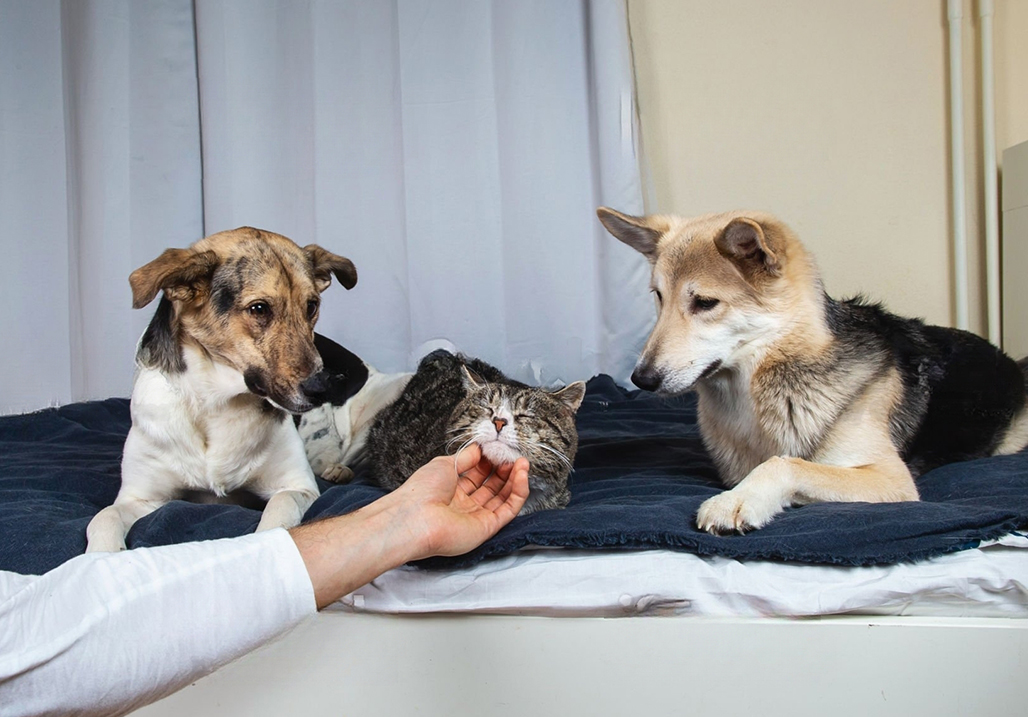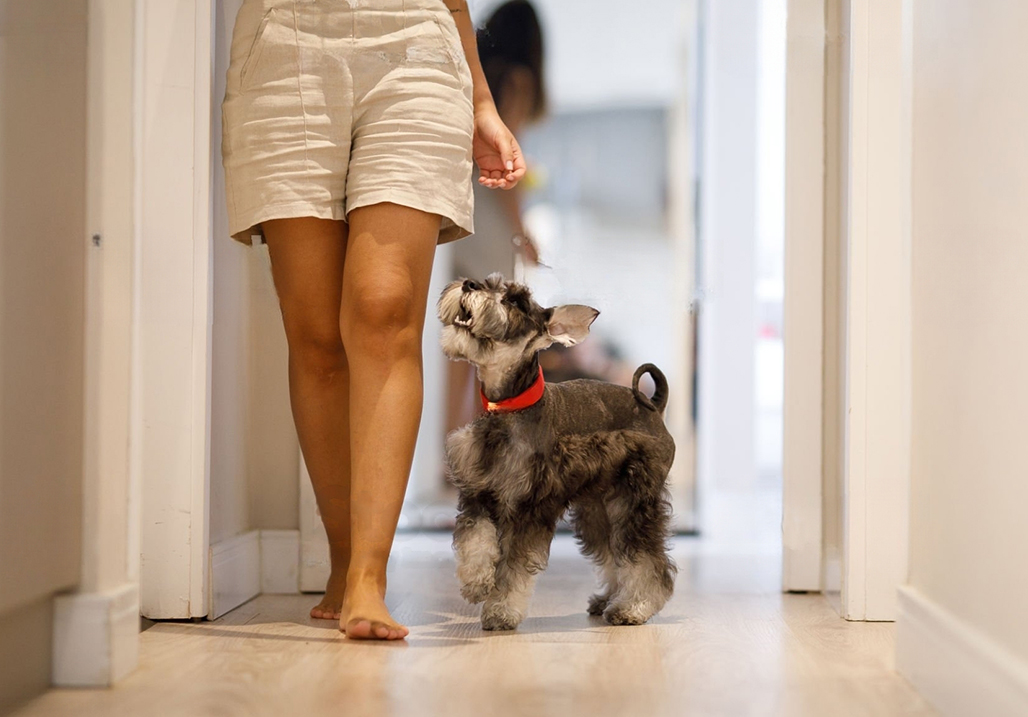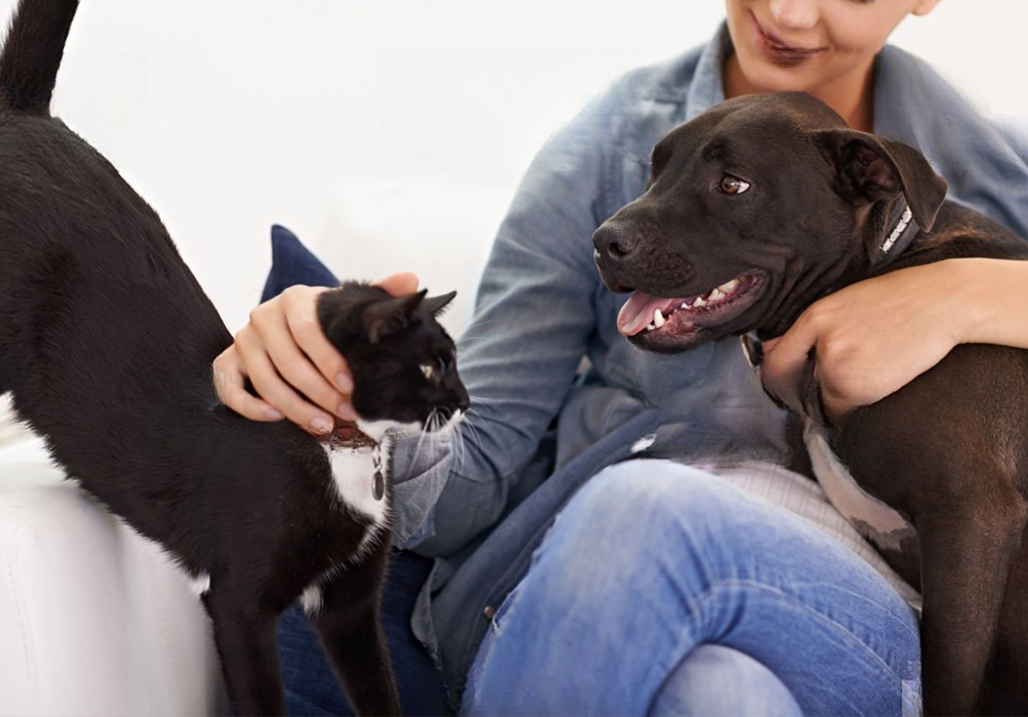Jealousy in Dogs and What Can You Do to Help
Jul 11,2023 | Petbobi
A dog may be acting out due to several reasons which may not always be easy to determine. Jealousy, protectiveness, and possessiveness are three behaviors that may easily overlap each other and can be misunderstood.
Do Dogs Really Get Jealous?

The concept of jealousy in dogs is a topic of debate and ongoing research in the field of dog psychology. While it is difficult to assign the human emotion of jealousy to dogs, there are several pieces of evidence that suggest dogs do feel jealousy and insecurity in multiple scenarios. A jealous dog perceives others as competition for their pet parent’s love, attention, and affection.
The Signs of a Jealous Dog

1. Aggression
Aggression is typically the last resort of communication used by a dog to express themselves. It happens when nothing else seems to work in their favor. Depending on what makes your dog jealous, he may express it by showing aggression towards owners, other pets, strangers in the house, etc. Aggression stemming from jealousy mostly comes out in the form of resource guarding, territorial aggression, and intra-household aggression
2. Acting Clingy
Your dog may suddenly become clingy because he may get insecure about sharing with you. This insecurity may make him act extra clingy towards you and he may show it in the form of following you from room to room, wanting to be around you all the time, physically touching his body against yours, etc. He may also perform these behaviors excessively in the presence of his triggers.
3. Inappropriate Toileting
A dog peeing and pooping in random areas of the house can be highly frustrating. However, this could be happening due to an underlying behavioral issue. It is possible for a dog to relieve themselves in unusual spots of the house as a way to communicate that they are jealous or stressed, especially when this behavior has gotten them attention from you in the past.
4. Avoidance
Avoidance is classic dog body language signifying stress and unhappiness. Behaviors like turning their back, hiding, and leaving the room are all common forms of avoidance. A jealous dog would typically show avoidance behavior at the sight or presence of the entity that makes them jealous so that they do not have to deal with the trigger.
How to Deal with Jealousy in Dogs?

1. Try to strike a balance
Having multiple pets in the house is a common cause of aggression in dogs. Make sure to give all of them equal amounts of attention, love, play, interaction, and resources. While it is important for your pets to get along in order to co-exist in the same household, it is equally important for you to also spend ample time with them individually to constantly assure them that they have nothing to be jealous about.
2. Never reward jealous behavior in any way
A dog clinging to you out of jealousy in the present
ce of another pet may seem super cute, but it is important to recognize that there may be a bigger underlying behavioral issue causing this behavior. Responding to a jealous dog with laughs and physical attention may only further add fuel to the fire. Do not try to purposely make your dog jealous for a few laughs on TikTok. Make sure to never pay heed to this behavior and discourage it as much as possible.
3. Make sure your pets have their own space and resources
Sharing resources and/or not having enough of them is the number one cause of jealousy in pets. Every pet must have its fair share of essential resources like food, toys, resting space, and quality time with owners. If your pets engage in fights day in and day out and engage in resource-guarding behaviors, make sure to separate them and their resources with a physical barrier like a baby gate. Separate feeding areas, plenty of toys, individual crates/ beds, etc. are just a few of the many resources every pet must have exclusive access to.
4. Proactively reward good behavior
Dogs are famous for repeating behaviors that get them rewarded in the form of attention. When your dog acts jealous and you end up giving them attention for it, you may have invariably rewarded the behavior. Every dog has bad moments that make them perform undesirable behaviors. However, every dog also has several good moments during the day. Make sure to proactively notice and reward these behaviors. Look for those moments when your dog is calm and indifferent around their triggers. This peaceful behavior warrants a reward.
5. Work on improving your dog’s relationship with those around them and yourself
Jealousy brings out the worst in everyone, not just humans. It can potentially scar your dog’s relationship with those around him. This dog is not causing problems, he is having a problem. When working with your jealous dog, make sure to focus on shifting his perspective about his triggers and strive to improve his relationship with you and the entity that makes him jealous. Consult a behaviorist who has experience in behavior modification through positive reinforcement.
Final Thoughts
It is not important for your dog to be best friends with everyone around him. But, if they can reach a point where they can peacefully coexist in the presence of their triggers, it is good enough.




